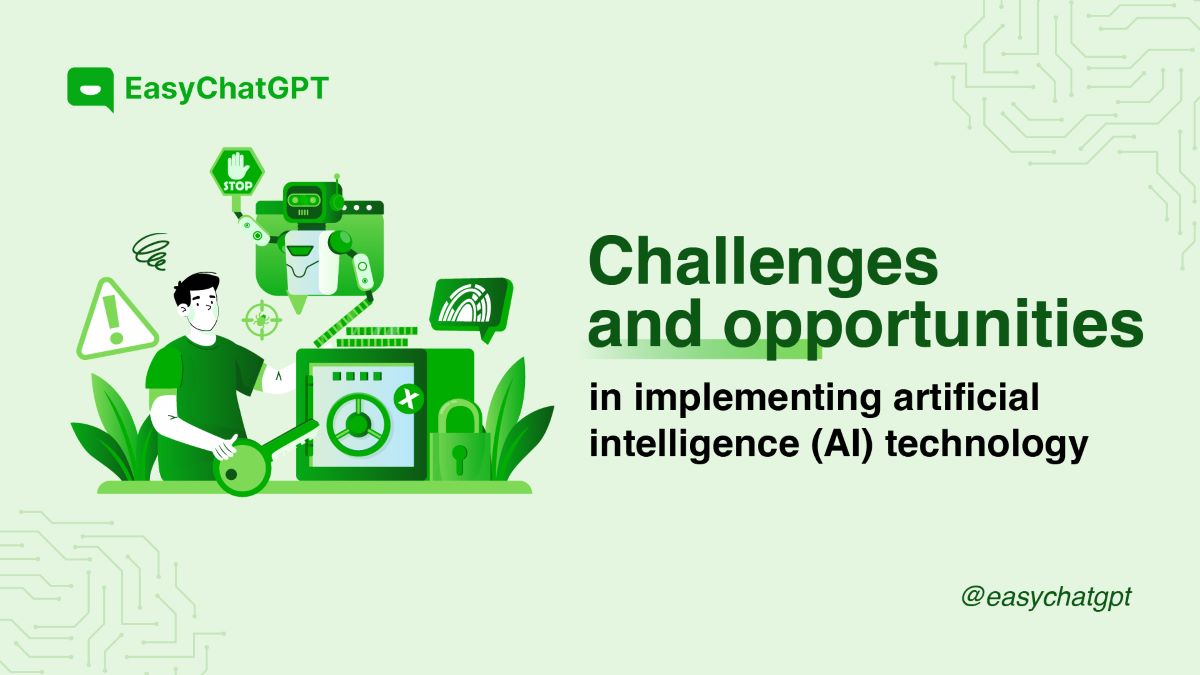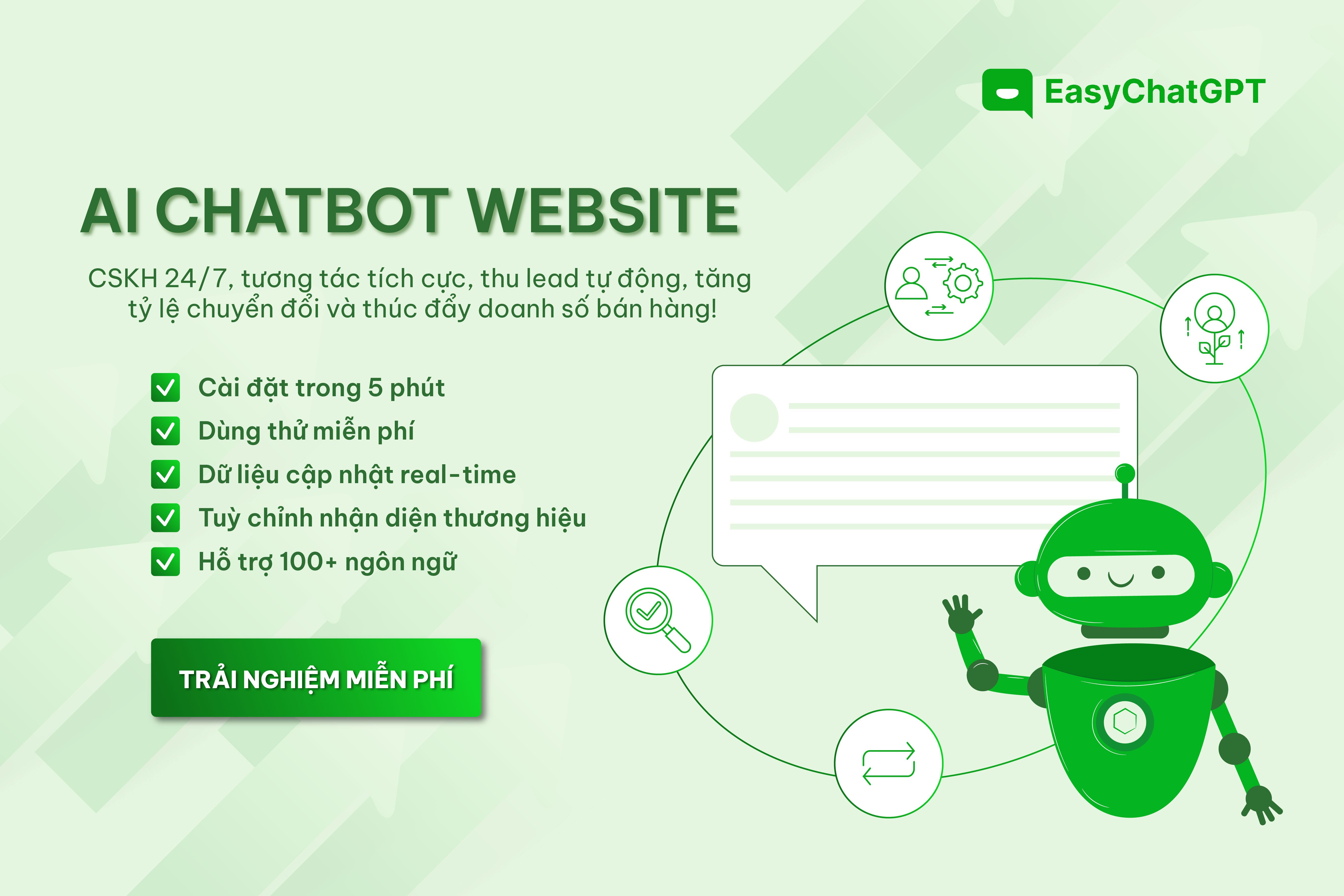Challenges and opportunities in implementing artificial intelligence (AI) technology

Artificial Intelligence (AI) technology is becoming increasingly popular and has a wide-ranging impact on many areas of life.
However, the application of AI technology not only brings exceptional benefits but also poses many significant challenges.
A report from Forbes pointed out that without appropriate policies, AI could exacerbate social inequality. Additionally, in the article "AI will be a hot topic at Davos 2024 - here’s what the experts are saying" from the World Economic Forum, it is recommended that developing responsible AI policies is essential for ensuring sustainable development. This article from EasyChatGPT will provide an overview of this issue below.
1. Challenges of artificial intelligence (AI) technology
Despite its great potential, the application of AI technology comes with many complex issues related to security, ethics, and the labor market.
1.1 Data security issues
One of the biggest challenges when using AI is the risk of personal information being exposed. AI systems collect and process large amounts of sensitive data, creating opportunities for cyberattacks. From large-scale hacks to malware, all of these raise the question: Is AI really safe when handling sensitive data?
For example, large tech companies like Meta and Google have faced accusations of security risks, leading millions of users to be concerned about their privacy.
1.2 Ethics and social responsibility
AI does not always make fair decisions. Some AI systems have been found to be biased due to incomplete or biased training data. According to the World Economic Forum, developing responsible AI policies is necessary to minimize these negative impacts.
For instance, in the recruitment sector, AI systems may prioritize candidates based on unfair criteria, inadvertently increasing social inequality. This raises the urgent need for transparency in how AI operates.
1.3 Potential to replace human workers
AI technology is increasingly reducing the need for manual labor, especially in industries such as manufacturing and transportation. A 2013 study from Oxford titled “The Future of Employment: How Susceptible Are Jobs to Computerization?” indicated that by 2030, more than 20 million jobs could be lost due to automation.
Smart factories using robots and AI could completely replace workers on assembly lines. However, this not only creates the risk of unemployment but also increases pressure on the workforce to constantly update their skills.
The application of artificial intelligence (AI) also comes with numerous complex issues related to security, ethics, and the labor market
2. Opportunities in implementing artificial intelligence (AI) technology
In addition to the challenges, applying AI technology also offers great opportunities to drive innovation and development in many fields.
2.1 Enhancing production efficiency
AI helps optimize workflows, speeding up production and reducing costs. Smart factories use AI to monitor and adjust the production process in real-time, helping to minimize waste and improve efficiency.
Tesla has applied AI in its electric vehicle production line, not only reducing production time but also improving product quality. This is clear evidence of how AI can revolutionize the industry.
2.2 Improving customer service
User experience is being elevated to new heights thanks to AI applications like chatbots and customer behavior analysis. According to the 2023 report “State of the AI Connected Customer” from Salesforce, 85% of businesses have implemented AI to improve customer service, helping to resolve issues quickly and personalize experiences for each user.
For example, chatbots like ChatGPT can answer questions, provide suggestions, and handle customer requests in a short time, creating satisfaction and retaining customers more effectively.
2.3 Opening new job opportunities
The development of AI technology is not only changing traditional industries but also creating entirely new job opportunities. Positions such as data scientists, AI developers, and machine learning engineers are becoming increasingly popular.
Furthermore, AI holds great potential in fields like personalized medicine and content creation, where new technologies can offer unprecedented solutions and improve quality of life.
The application of artificial intelligence also brings significant opportunities to drive innovation and development across various sectors
3. Solutions to effectively leverage AI benefits
To apply AI technology sustainably and effectively, businesses need to take proactive steps in developing strategies and comprehensive solutions.
3.1 Developing responsible AI policies
Governments and international organizations need to establish clear regulations to protect workers and personal data privacy. According to recommendations from the World Economic Forum, strengthening global cooperation in AI governance is essential.
3.2 Training skills for the workforce
To address the risk of job loss due to AI, investing in reskilling and upskilling employees is crucial. Businesses need to offer specialized training programs to help the workforce adapt to changes.
3.3 Building trust and transparency
Transparency in AI operations is the best way to build trust with customers and society. Businesses should openly share processes, algorithms, and commit to using AI responsibly.
Solutions to effectively harness the benefits of AI involve building strategies and fostering sustainable development
4. Conclusion
The application of AI technology brings both challenges and opportunities, requiring businesses to carefully consider and develop appropriate strategies. Additionally, to maximize the benefits of AI, individuals and companies need to develop responsible policies, train the workforce, and commit to transparency in all AI-related activities. The implementation of AI technology is the key to driving businesses toward sustainable development.




